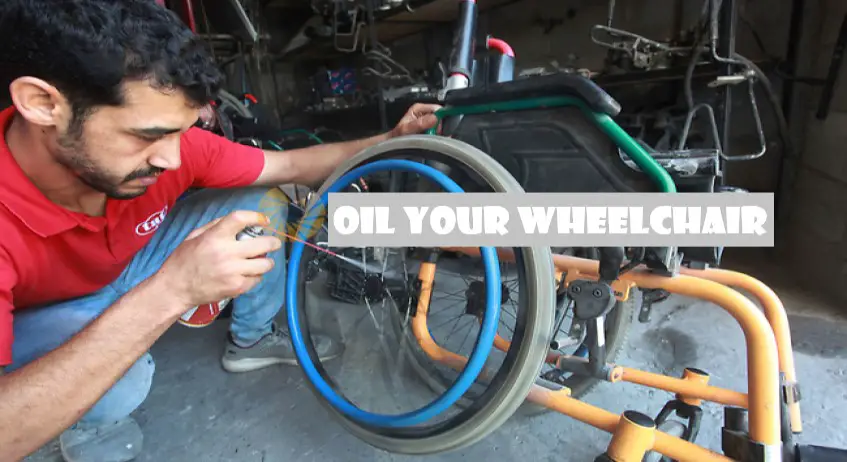A survey is defined as an investigation carried out to determine the opinions or experiences of a person/persons.
It can be physical or online.
Disability is any illness or impairment of the body or mind of a person that prevents or hinders them from engaging in certain activities or relating with people.
The process of asking about disability in a survey can be quite sensitive, that’s why you need to know how to effectively go about it without hurting the feelings of the respondent(s).
I shall guide you through the process in this article as you read on.
Table of Contents
- Why Ask about Disability in a Survey?
- Why Do You Need to Know How to Ask?
- How to Properly Ask about Disability in a Survey
- Techniques to Ask about Disability in a Survey
- Question Asking Tips in a Disability Survey
Why Ask about Disability in a Survey?
There are various reasons why you might include questions about disability in a survey. They include:
1. For research purposes
Surveys about disability help in understanding disabled people and their plight. For example, policymaking and other vital decisions are meant to make work and social environments more inclusive of people with disabilities.
2. For official purposes
Some workplaces are well aware of the constraints of their work environments and the physical and mental stressors that they could entail.
They might, therefore, want to know at various times if their employees are currently suffering from particular conditions or if they are at risk of being overwhelmed. And if so, how they can adjust the work environment to be less burdensome for them.
Related: How to Clean & Disinfect Your Wheelchair Like a Pro
3. For aids/assistance
The help offered by organizations can vary according to the type and extent of disability, as well as unique experiences as a consequence of their impaired health.
Surveys help to better classify what category of disability a person falls into, and they make it easier for the institutions that are offering help to them to know if they are in a position to help or not. If they’re not in a position to provide help, they’d help them seek better and specialized support.
Why Do You Need to Know How to Ask?

Disabilities, whether visible or not, are often a touchy subject to broach.
As with everything that people do not understand, it is easy to misjudge. People with disabilities know this; hence, they are wary of people who ask them questions about their disabilities.
How this affects a survey:
- They refuse to answer the questions in their entirety
- They lie and give answers that they believe you want to hear
- They get scared because they think that the survey could serve as a disadvantage to them
Therefore, knowing how to properly ask about disability in a survey will help to minimize or completely erase the chances of these happening.
Related: How Fat Do You Have to be to Get Disability? (Answered)
How to Properly Ask about Disability in a Survey
There are common rules that you must keep in mind when asking about disability in a survey. These act as a good foundation for the other specific techniques that will be employed. They include:
1. Be respectful
Treat people with disabilities as you would your other respondents. Don’t yell at them, and don’t be condescending. Raise your voice if you must, but let it be clear for the sake of the patient’s hearing.
2. Be patient
People with disabilities might have a harder time comprehending your words and giving their answers. You have to slow down when speaking and do so calmly. When listening, pay attention and keep your recorder on so that you have a backup for easy and accurate transcription.
3. Be sensitive
Choose your words carefully and avoid the use of derogatory terms. Watch their body language and behave accordingly. Also, be aware of their disability. You don’t have to raise your voice at a visually impaired person. They can hear you.
If you sense the slightest discomfort, work on reassuring your respondent and proceed when you are convinced that they are calm again.
4. Be empathetic
Put yourself in their shoes. Look through your questions properly and cross out or rephrase questions that might unsettle your respondent.
Related: How to Easily Change a Diaper in a Wheelchair (Complete Guide)
Techniques to Ask about Disability in a Survey

These points are important whether the survey is physical or online. They should guide you in posing your questions.
1. Build rapport
Greet your respondent, introduce yourself, and try to make them at ease. You can do this by using conversation starters. Keep things professional but friendly. Keep them within the loop but don’t jump straight to the disability questions. Ask them if they need anything; water, maybe? Make them comfortable.
2. Assure them
As with every procedure, explain extensively to the respondent why this survey is significant, and what the short and long-term goals of the survey are. Ensure to highlight all the positives of the survey and reiterate that you’re bound to a confidentiality agreement and their information will not be divulged to anyone.
Question Asking Tips in a Disability Survey
Properly phrasing the questions is crucial in collating accurate and relevant information.
1. Use range responses
Responses posted in a group or a range appear less invasive and confrontational, and respondents are more likely to respond positively to them. An example is when asking for how long a person’s mental breakdown lasts and the options appear as such:
- 20-30 mins
- 1hr – 2hrs
- 1 day – 3 days
as opposed to insisting that they give an exact figure or time.
2. Use the question loading strategy
It appeals to the respondents’ minds more and makes it easier for them to be honest with you. An example is:
We have specialized packages for women who come to our facility with other issues asides from their disability. We understand how difficult it can be and would love to help you get healed. Would you be interested in trying out any of our support groups? If yes, please tick any of the boxes below.
- Alcohol dependence
- Suicidal ideation
- Abuse
- Sexual Assault
3. Avoid leading questions
The only way to do this is to ask open-ended questions with engaging options for responses. For example, if you’re trying to ascertain how badly their disability affects their attendance at work or school, you ask:
How many times have you had to cancel or call in sick in school because of your disability in the last month?
- 1 – 2 times
- 4 – 8 times
- 10 – 14 times
- >20 times
Instead of:
Do you think your disability stops you from going to school or work?
- Yes
- No
Not only will this stop the patient from giving a biased response, it will also help you to have a better overview of their disability and how it affects them.




